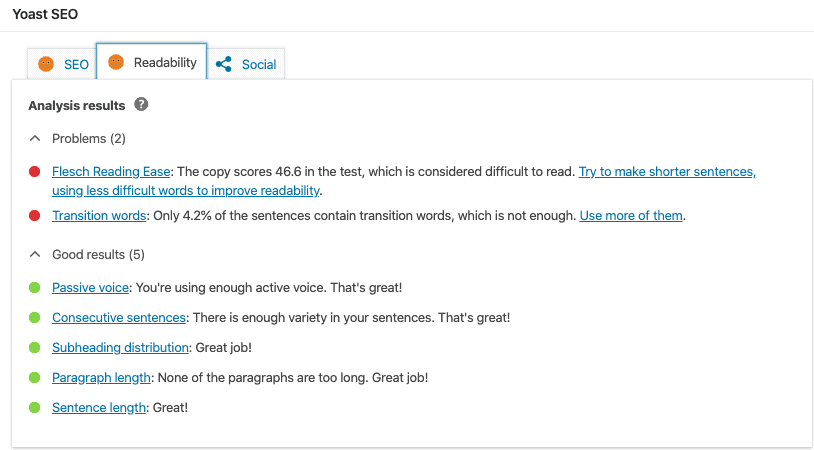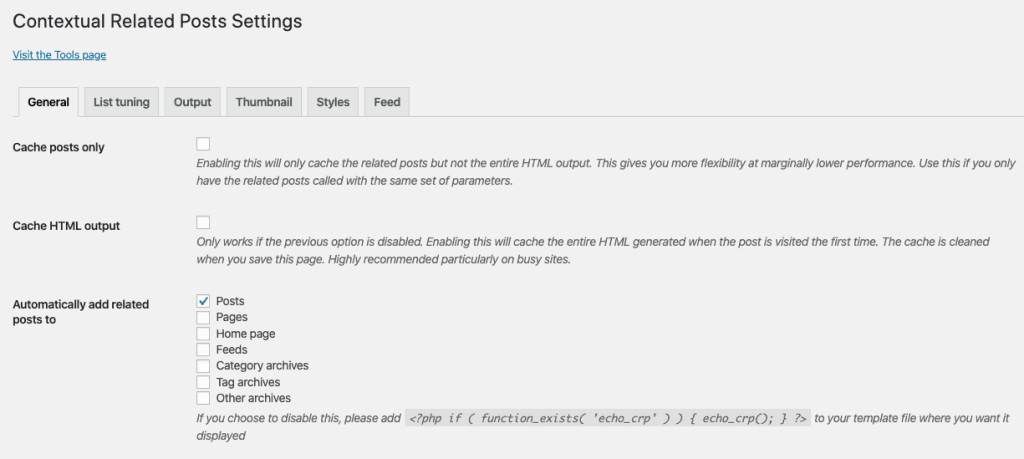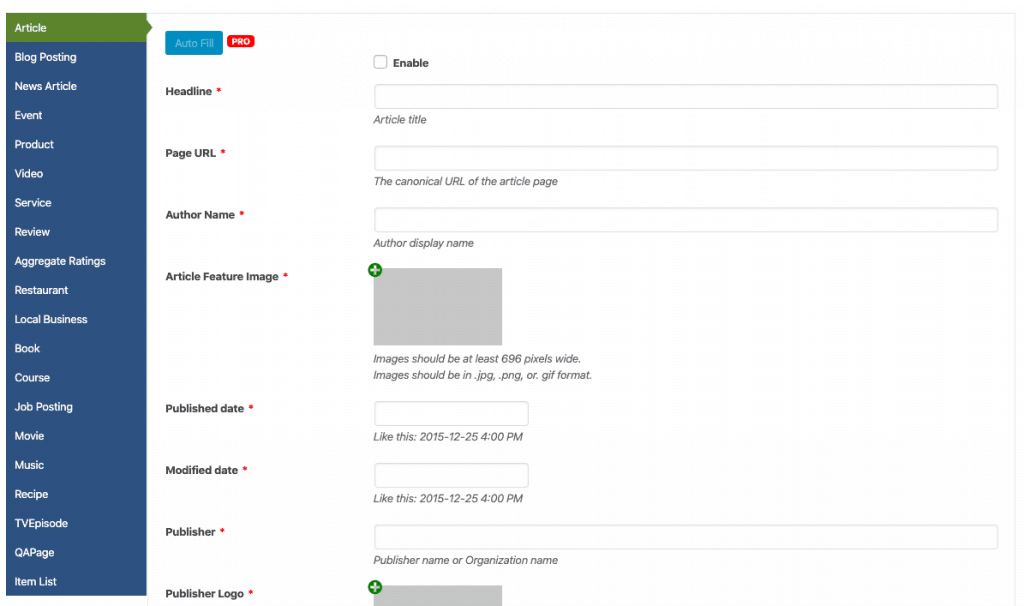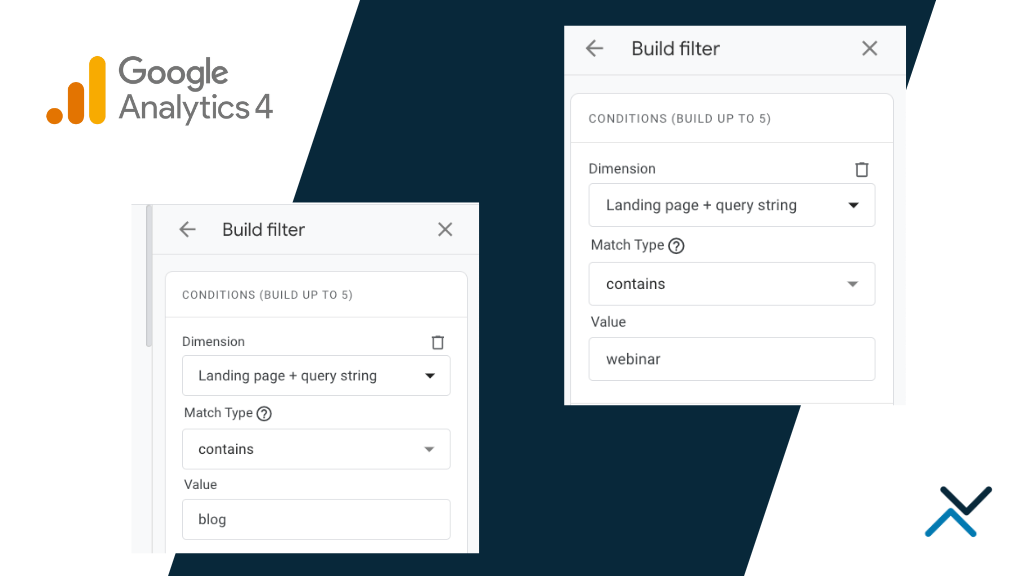What are the best WordPress plugins for SEO available today?
Most small-to-midsize business websites are built on the WordPress framework and content management system. WordPress is incredibly easy to use, has a large user community, documentation for nearly everything and a wide variety of plugins that can be quickly implemented on websites.
One question that comes up often is how to optimize WordPress for SEO to rank better in Google searches. While the immediate answer is to write great content that is rich with different types of media and uses strong keyword research, there are several plugins you can use to help automate common SEO tasks. If you’re new to WordPress or a seasoned veteran of the content management system, here are five SEO-focused plugins we recommend checking out.
5 Best WordPress SEO Plugins
Before jumping into the different plugins we recommend, there are a couple of steps you need to make sure you work through beforehand.
First, once you have installed a fresh version of WordPress, it’s very important to go into the reading settings and ensure the site can be crawled by search engines (crawlers, spiders, bots, etc.). Most installs of the CMS will auto-disable this setting for you, but it’s best to double check.
Click into Settings > Reading > Search Engine Visibility:

If this setting is checked, this essentially tells web crawlers to go away and avoid reading through your site. This will make it difficult to index your website and rank in search results.
Second, you need to adjust what your default URL structure should be. We always recommend site.com/page-name, but you may wish to categorize your site’s content differently. Click into Settings > Permalinks and select the setting that is best for your content structure.
We these initial steps out of the way, you’re ready to begin installing SEO plugins.
1. Yoast SEO
Yoast is an unbelievably user-friendly SEO tool that is offered in a free version and paid version. Once installed, the plugin gives its users the option to overwrite page titles and descriptions, set up rules to automate titles and descriptions, determine which page types should be crawled or ignored, update robots directives and update htaccess files without the user needing to use file transfer protocol (FTP).
The tool will also grade your content’s readability so you can craft content that is easy to understand for your users. And you can provide a target phrase for each post or page to predict how well your content will perform.

For a free tool, Yoast is an absolute must. In some rare cases, Yoast is not compatible with certain WordPress themes. You can try to dig into the plugin files (not recommend) or opt for a similar tool like All-In-One-SEO Pack. If you would like more features from Yoast like easy redirection and more phrase-match options with your target keywords, you can upgrade to the premium version anytime right within your WordPress dashboard.
2: Autoptimize
When it comes to performance and page speed of a website, being as fast as possible is critical for SEO. Google wants its users to have a great experience on your site and one way to do so is to make sure your content loads fast without any hiccups. Thankfully, Autoptimize does all of the heavy lifting for you.
Not only will this handy plugin crunch large images to make sure they load quickly, it also minifies CSS, scripts and any styling that may be causing your pages to load slowly. It also establishes caching parameters so users get to your content really fast. Everything is handled in the background, making it easy for you to have a fast site that complies with Google’s Pagespeed Insights.
Like all WordPress plugins, it does have some compatibility issues with a few select themes. If you happen to run into any issue, the developers are very responsive in support threads.
3: Redirection
If you have ever created new landing pages and had to redirect old URL paths to the new URL paths through an .htaccess file, you know how complicated it can be. Many WordPress developers have created workarounds to make the process for redirects easy so webmasters can avoid FTP altogether, but there is one that offers its users an unmatched and easy-to-use interface – Redirection.
Redirection‘s interface allows its users to insert the old path (relative or absolute), the new path and select the type of redirect (301, 302). It also provides log reports and displays any 404 URL errors as a result of any incorrect redirect paths.

The plugin works for a small number of URL redirects and it can handle thousands of URLs for larger content-heavy sites. It’s been available to WordPress users for nearly 10 years and is highly rated. If you want to avoid redirect scripts, FTP and .htaccess files, there is no better option.
4. Contextual Related Posts
Creating contextual internal links to posts and pages is critical to the SEO success of your various content pieces. It helps Google recognize the content and crawl deeper into a website. It’s an especially useful tactic for keeping older posts relevant to Google. However, promoting content within other pieces of content can become a cumbersome task if you are working with a lot of content on your site.
The plugin Contextual Related Posts works to automate this internal link process for you by identifying similar characteristics in your content and creating a visually appealing link. The tool uses elements like titles, headers, body copy, category designations and tags to understand which posts are contextually relevant and appropriate to link to. This helps keep users and search engine crawlers engaged with your content, spending more time on your site to consume its materials.

There are several plugins available that provide this same internal linking functionality, but Contextual Related Posts seems to provide the best logic and consistency among the internal links it creates. It’s easy to install and set up, offers unmatched customization and runs seamlessly on autopilot in the background of a site.
Like any plugin, you may run into compatibility issues with how images and links are displayed in accordance with your WordPress theme. This can typically be resolved with a few CSS updates and if necessary, you can find support from the plugin’s developers.
5. WP Structured Data
Webmasters and SEOs alike have found success with structured data in search results and it’s becoming more and more important for Google to appropriately understand what content is about. Depending on the type of site and services offered, SEOs who implement structured data choose from a variety of schemas like LocalBusiness, Event, Place, Product, Restaurant, etc. Accurate schema to describe a website and its content goes a long way in organic search results. However, structured data through schema.org can be a difficult language depending on your level of coding expertise. Certain schema elements are easy to implement while other functions require a thorough understanding of the logic.
Thankfully a well-reviewed WordPress developer, WPSEMPlugins.com, created a simple plugin that makes learning the logic a non-issue for users of the CMS. Content creators can focus their attention on crafting compelling content and leave the technical aspects of structured data to this tool. Once installed, users select the right type of schema, mark up their content through a set of fields without touching any HTML and publish the structured data. It makes learning structured data a complete breeze and mindless task.

The paid version of the plugin offers an option to automate all of the data input, making things even easier.
Other Considerations
Once you have your site properly set up and content published, it’s time to understand how the content is crawled by search engines.
There are many crawl-mimicking tools available (both free and paid), but we are huge fans of Screaming Frog. This robust crawling tool will crawl all resources on your site and inform you of what is missing or any opportunities you can optimize for. It shows common technical and on-page SEO elements like title tags, descriptions, header tags, HTTP responses, etc.
Screaming Frog is free to use for up to 500 URLs (this covers most small business websites) and has a paid version for larger enterprise sites.









